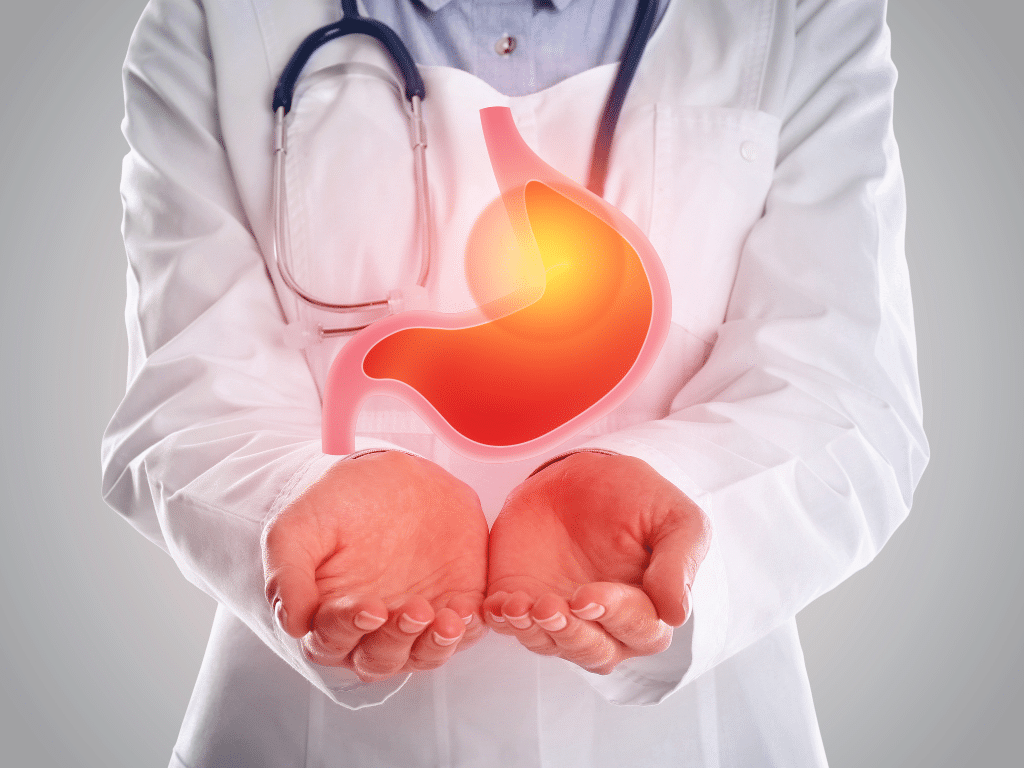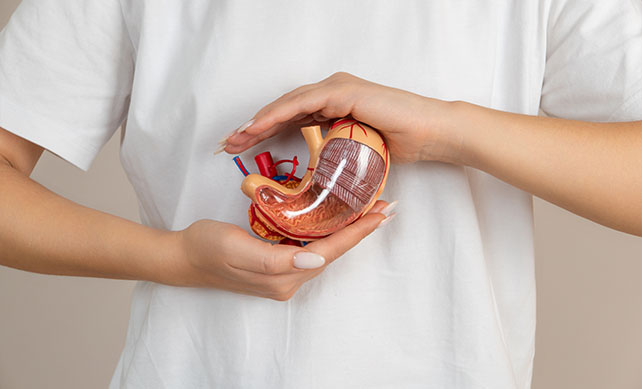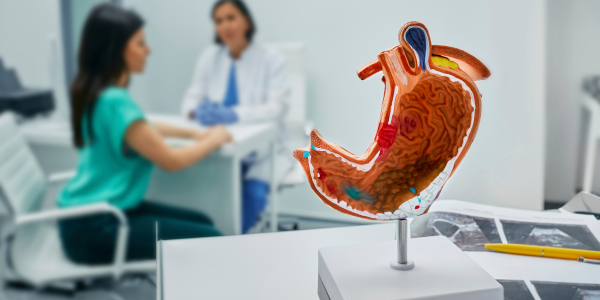Gastric Bypass
What Is A Gastric Bypass Operation
Luxin Aesthetics Bypass Surgery, also referred to as Roux-en-y bypass surgery, combines sleeve gastrectomy in a bariatric procedure. It stands as a significant weight loss intervention, facilitating a reduction of 55-70% in excess weight. The mechanism involves isolating the upper part of the stomach pouch and diverting it directly to a section of the small intestine, thus restricting food passage to the upper stomach. Consequently, even a small food intake induces a sensation of fullness, mimicking a larger meal. The duration of this procedure typically ranges between 2 to 4 hours.
An indispensable criterion for surgery candidacy is a suitable Body Mass Index (BMI), with 35 or higher being the qualifying threshold. Besides addressing obesity, Luxin Aesthetics Bypass Surgery can effectively manage various conditions such as sleep apnea, heart disease, high cholesterol, and hypertension, among others, in eligible patients.

After undergoing a Gastric Bypass procedure, as the stomach pouch receiving food is reduced in size, your body’s absorption of calories and nutrients will decrease. Consequently, your surgeon may recommend vitamins and supplements to support your immune system. It’s likely that you’ll need to continue taking these supplements for an extended duration.
Potential candidates for gastric bypass surgery
Not everyone is eligible for a Gastric Bypass procedure at Luxin Aesthetics. Certain conditions must be met for a patient to be considered a suitable candidate. The primary criteria include:

The individual seeking this procedure must meet the following criteria:
– Weigh at least 40 kg.
– Have a BMI of 35 or higher.
– Be in good health without underlying conditions contributing to excess weight.
– Not have any blood clotting issues that could pose risks during surgery.
– Be free from serious and chronic illnesses like heart disease, type 2 diabetes, hypertension, high cholesterol, and immunodeficiency.
– Not suffer from obesity-related health complications such as osteoporosis or cartilage degeneration.
A person who hasn’t succeeded in shedding weight despite regular exercise and a well-rounded diet. The individual should be free from infections caused by specific viruses like hepatitis C, anemia, and AIDS.
Pre-Preparation Tips for Gastric Bypass Surgery
Before undergoing the Luxin Aesthetics Gastric Bypass Operation, the patient must follow these preliminary steps:
1. Complete necessary medical tests to ensure their health condition is suitable for the operation.
2. Abstain from consuming any food or beverages for eight hours prior to the Gastric Bypass Operation.
3. Cease smoking for a minimum of two weeks to a month before the operation.
4. Avoid intake of any blood thinners, such as green tea.
5. Eliminate all forms of caffeine, including Arabic coffee and tea, for at least two weeks prior to the operation, as they can hinder anesthesia effectiveness.
6. Discontinue use of any medications that may thin the blood for at least two weeks before the operation.


Stages Of Gastric Bypass
The Gastric Bypass Procedure comprises three primary phases:
1. Anesthesia Phase: During this phase, general anesthesia is administered to ensure the patient remains pain-free throughout the procedure.
2. Sleeve Gastrostomy Phase: In this stage, the physician creates a sleeve in the upper portion of the stomach, forming a small pouch capable of holding up to 28 grams of food. This alteration directs food directly to this smaller pouch, bypassing the larger lower section, thereby encouraging the consumption of smaller food portions.
3. Gastric Transformation Phase: Here, the physician establishes a direct connection between the upper portion of the stomach and the small intestine via a small aperture, facilitating the passage of food into the small intestine.
Here are some tips following a gastric bypass operation, brought to you by Luxin Aesthetics.
Patients who have undergone gastrointestinal bypass surgery must adhere to certain guidelines and instructions for optimal recovery. Among the most crucial are:
1. Avoid consuming solid food immediately after the procedure; instead, focus on fluids initially, progressing to pureed and soft foods before reintroducing solid, complex foods.
2. Incorporate vitamins and mineral supplements into your daily routine, including iron, calcium, and vitamin B12.
3. Refrain from engaging in strenuous activities or lifting heavy objects for at least a month following the surgery.
4. Abstain from smoking for a minimum of two weeks to a month post-surgery.
5. To sustain the benefits of the operation and achieve long-term weight management, adhere to a well-balanced diet and engage in regular exercise.

